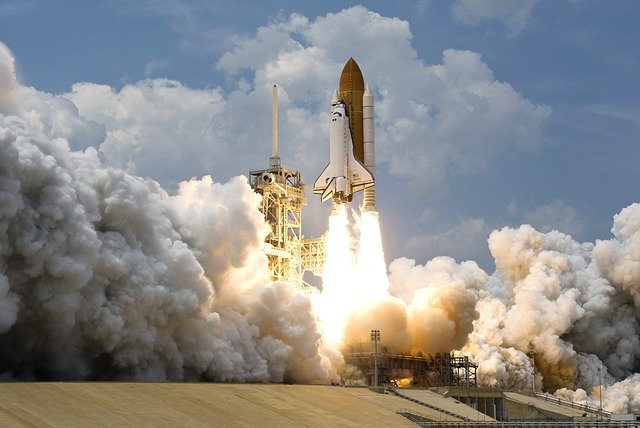Hungary's first five-year master's degree programme in aerospace engineering will be launched at Budapest University of Technology and Economics (BME) in September 2022. In a press release issued, the university announced that the best graduates would be able to continue their education as part of doctoral studies. Meanwhile, applications to take part in the selection process for the second Hungarian astronaut in history can be submitted until 31 January 2022.

Photo by WikiImages z Pixabay
As early as in 2018, the Minister of Foreign Affairs and Trade Péter Szijjártó announced that renewed participation in the peaceful exploitation of space would be one of the new priorities of Hungarian foreign and economic policy. – Unfortunately, Hungary has not played an important role in the space sector to date, despite the fact that Hungarian companies and universities have a great deal of potential, knowledge and technology in this particular field – the head of Hungarian diplomacy noted at the time, adding that the government in Budapest finally intends to make use of this capability.
Doctoral studies in aerospace engineering
In an announcement published on Wednesday, the authorities at Budapest University of Technology and Economics (BME) declared that thanks to the collaboration of the university's five faculties, next September BME will launch Hungary's first five-year master's degree programme in aerospace engineering. The best graduates will also have the opportunity to continue their education as part of a doctoral programme.
Applying to become an astronaut
There are numerous indications that graduates of the new course will be able to put their newly acquired theoretical knowledge into practice. In August this year, Péter Szijjártó announced that by 2025 Hungary would send its astronaut – for the first time in history, it may be a woman – to the International Space Station (ISS). The government in Budapest has communicated that it intends to achieve this goal in cooperation with the US agency NASA. The mission is scheduled to last between 30 and 60 days. The Hungarian astronaut will be responsible for conducting scientific experiments using Hungarian-made equipment used for telecommunications, Earth observation and measuring radiation. The equipment will be developed by Hungarian companies and universities participating in the space programme.
No Hungarian citizen has travelled to space for over 40 years. The first and so far only Hungarian astronaut was brigadier general and military pilot Bertalan Farkas. He began training for his space travel in March 1978 and embarked on his mission on 26 May 1980 aboard Soyuz 36. Docking to the Soviet orbital space station by Salyut-6 took place on 27 May. Farkas returned to Earth on 3 June 1980 in a Soyuz 35 capsule.
The contest to become the second Hungarian in space was announced in October 2021. Those wishing to apply can do so until 31 January 2022. – For applicants to the national astronaut program, a combination of real achievement, outstanding technical and scientific skills, and patriotism is a prerequisite – announced Orsolya Ferencz, Commissioner for Space Research from the Hungarian Ministry of Foreign Affairs and Trade. Those wishing to participate in the selection process should have advanced technical abilities, extensive scientific knowledge, a high degree of mental resilience and excellent English language skills.
New agreements signed
The space travel of a Hungarian astronaut is supposed to be a springboard for a multi-annual programme aimed at Hungary's entry into the space sector. Last month, the Hungarian government signed a cooperation agreement with the French-Italian aerospace manufacturer Thales Alenia Space. Experts from this consortium are set to train Hungarian space industry professionals and facilitate Hungarian entrepreneurs' participation in major European space programmes. One year ago, Hungarians also entered into an agreement with the National Centre for Space Studies (CNES) in Toulouse to establish cooperation on space exploration projects and those aimed at advancing space knowledge. Hungary has also signed a similar agreement with Israel.
(JAP)
